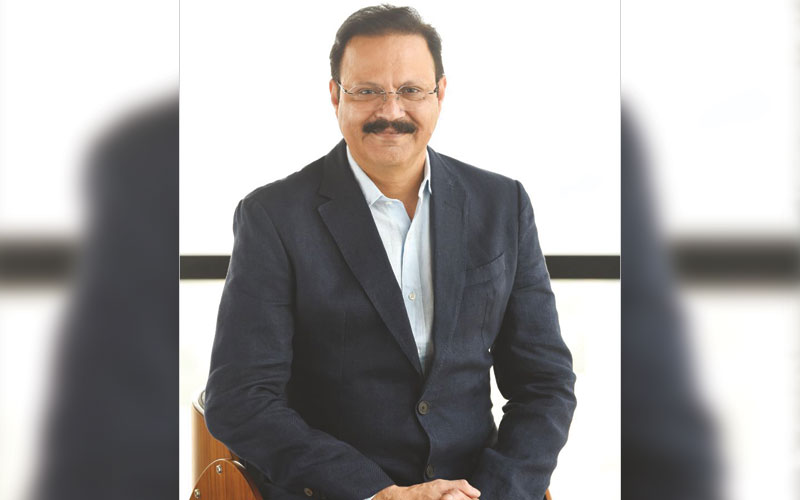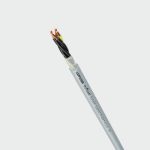
In the dynamic landscape of infrastructure development, cables serve as the lifelines that power, connect, and enable modern societies. From transmitting electricity to facilitating communication and data transfer, bespoke cables tailored to specific project requirements are becoming increasingly indispensable. In India, a country experiencing rapid urbanization, industrialization, and technological advancement, bespoke cables are playing a crucial role in driving growth for marquee projects across various sectors. In a recent interaction with Wire & Cable India magazine, Mr. Bhushan Sawhney – Executive President and Chief Business Officer (B2B), Polycab India shared that, “With decades of experience and expertise, I have witnessed firsthand the transformative power of customized cable solutions across various sectors, from energy and transportation to telecommunications and defense. In this article, we will explore how bespoke cables are shaping the future of India’s infrastructure and revolutionizing the way we approach large-scale projects.”
Customization for Complex Requirements
In today’s complex and dynamic environment, one size certainly does not fit all when it comes to cable solutions. Each infrastructure project comes with its own set of challenges and requirements, whether it’s the need for high-voltage transmission, resistance to extreme weather conditions, or compatibility with cutting-edge technologies. Off-the-shelf cables simply cannot meet these demands, which is why bespoke solutions are essential. By customizing cables to the specific needs of each project, we can ensure optimal performance, longevity, and reliability. Marquee projects are the crown jewels of the project owners’ offerings which may demand high customizations to deliver the best features and performance and highly differentiated customer experience. Hence, the onus also lies on us as cable manufacturers to ensure the marquee status of the projects through high-quality, advanced and customized cabling solutions.
Meeting Diverse Industry Needs
In India, the demand for bespoke cables spans various sectors, each with its own set of challenges and requirements. For instance, in the renewable energy sector, where solar and wind farms are proliferating, cables must be resistant to UV radiation, temperature fluctuations, and moisture ingress. Similarly, in the transportation sector, especially with the advent of metro rail projects and high-speed corridors, cables need to withstand mechanical stress, electromagnetic interference, and fire hazards.
Watch: RR Kabel | Solar Cables | Solar Plant | Renewable Energy
Let us take a closer look at a few more examples of bespoke cables and their critical applications in marquee projects:
Automotive High Voltage Cables: Growing demand for EVs across the world propels the need for efficient and reliable automotive high voltage cables to support the electrification of vehicles. Governments and regulatory bodies are also supporting a transition to cleaner transportation, increasing the production and sales of EVs. Thus, the demand for high-voltage cables is upsurging. Automotive high-voltage cable manufacturers have set sights on introducing innovative features and advancements to meet the evolving needs of EV users, including obtaining safety and quality certification; developing extension cables to enhance convenience; and incorporating technologies such as liquid cooling for improved efficiency. These trends highlight the cable industry’s commitment to delivering high-performance and durable cables that cater to the demands of the evolving EV market.
The PLI scheme for automobile and auto components worth $3.49 billion is expected to collect ~$5.74 billion in investments by 2026. Moreover, the investment flow in EV start-ups has increased from 2018 by 255%, reaching $444 billion in 2021. Thus, the growing consumer automotive sector in the country will boost the automotive high-voltage market in India in the coming years. In April 2023, Volkswagen announced the launch of a premium electric SUV ID.4 to tap the opportunity in the fast-growing electric mobility space in India. TATA also launched Punch.ev in January 2024. To understand the impact, the Asia Pacific automotive high voltage cable market in India for the copper segment was worth $108.93 million in 2022 and is expected to reach $209.14 million by 2030; it is expected to grow at a CAGR of 8.5% from 2022 to 2030.
Data Centre Co-Location Services: As the digital economy continues to expand, data centres are the backbone of modern infrastructure. Cables are optimized for high-speed data transmission, low latency, and maximum reliability. The cables are designed to operate in tightly controlled environments that meet customers’ requirements and achieve greater efficiencies. Whether it’s fiber optic cables for long-distance connectivity or high-density copper cables for server racks, customized solutions are essential for meeting the demanding requirements of today’s data-driven world.
With close to 45 MW of operational capacity in Chennai and in line with the digital adoption in India & TN, data centre major ST Telemedia Global Data Centres India (STT GDC India) has signed an MoU with the Tamil Nadu Government during the Global Investors Meet 2024 to invest up to Rs 1,900 crores ($241 million) over the next 5-7 years to create additional data centre capacity of up to 80MW critical IT load.
HVDC Transmission Cables: With the push towards renewable energy integration and the need to transmit power over long distances with minimal losses, HVDC transmission cables are crucial. These cables are customized to handle high voltages and currents efficiently, making them indispensable for large-scale solar and wind energy projects, as well as inter-regional grid connections.
In 2022, the Power Ministry unveiled an INR 2,440 billion (US$ 30 bn) plan to build over 50,000 km of electricity transmission lines, intended to evacuate the planned renewable capacity of 500 GW by 2030. The transmission infrastructure required includes 8,120 km of HVDC transmission corridors, 25,960 km of 765 kV alternate current lines, 15,578 km of 400 kV lines, and 1,052 km of 220 kV lines. In addition, under the Green Energy Corridors Program, Powergrid has identified 9 high-capacity green transmission corridors needed to connect eight wind and solar-rich states to other regions. In total about 43 GW of capacity is envisaged at an estimated total cost of US$ 6 bn.
Fiber Optic Cables for Smart Cities: As India’s urban centres evolve into smart cities, the demand for high-speed internet connectivity and advanced communication networks is escalating. Bespoke fiber optic cables are essential for providing reliable broadband connectivity and supporting applications such as smart lighting, traffic management, surveillance, and public Wi-Fi. Taking the example of Bengaluru City, to increase throughput and safety and support future modes of transportation, the city is upgrading its old traffic management system. The city has installed an Intelligent Traffic Management System in 50 junctions.
Talking about telecom, cables form the infrastructure layer of the Telecom cloud designed to enable new technologies such as 5G and IoT efficiently. In this regard, the Department of Telecommunication is targeting 70% fiberisation of towers, average broadband speeds of 50Mbps, and 50 lakh km of optic fiber rollouts, across the country, by December 2024.
Also Read: Sustainable Cable Innovation: Bio-Based Sheath for a Greener Future
The Role of Innovation
Innovation is at the heart of advanced and customizable cable manufacturing. From advanced materials and insulation techniques to state-of-the-art manufacturing processes, continuous innovation drives the development of customized cable solutions. As industry leaders, we constantly push the boundaries of what’s possible, leveraging the latest technologies and best practices to deliver superior products that exceed our customers’ expectations.
Sustainable Solutions for the Future
Sustainability is also a key consideration in customized cable manufacturing. By using eco-friendly materials, optimizing energy efficiency, and minimizing waste, we can reduce the environmental impact of our operations and contribute to a more sustainable future. From recyclable components to energy-efficient designs, we are committed to minimizing our carbon footprint while delivering high-quality cable solutions that meet the needs of our customers and the planet.
Driving Economic Growth & Competitiveness
The adoption of custom-designed cables not only drives growth for individual projects but also contributes to the nation’s overall economic growth and competitiveness. By providing customized solutions that meet the unique needs of Indian infrastructure projects, we create value, stimulate innovation, and drive job creation across the entire value chain. As India continues to invest in its infrastructure, the demand for bespoke cables will only continue to grow, positioning the country as the global leader in infrastructure development.
Conclusion
In conclusion, bespoke cables are not just components but enablers of India’s infrastructure evolution. By customizing cables to meet the diverse and complex needs of marquee projects, we can ensure the reliability, efficiency, and sustainability of our infrastructure networks. With innovation, collaboration, and a commitment to excellence, the cables and wires industry is poised to play a transformative role in shaping the future of India’s infrastructure and driving economic growth and competitiveness on a global scale.




